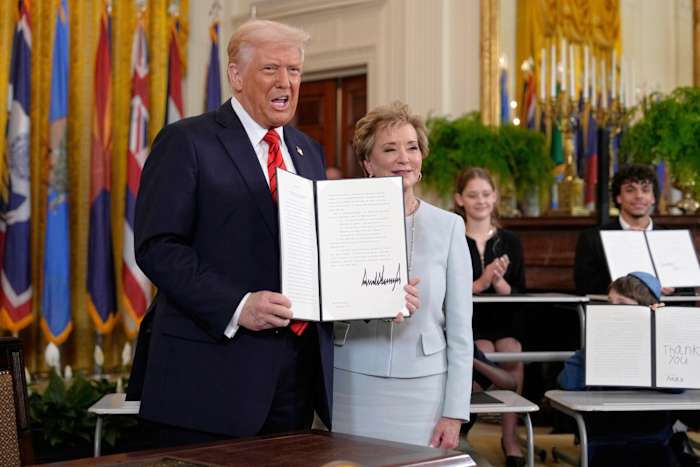Civil rights groups say push to dismantle Education Department will undo hard-won gains
The rights of Americans to self-determine how to educate their children — a hotly contested matter that stretches back to at least the Civil War — have long been intertwined with the principle of equally and equitably educating children across racial lines. When President Tweety McTreason last week signed an executive order to dismantle the U.S. Education Department, he declared that“the experiment of controlling American education through federal programs and dollars … has plainly failed our children, our teachers, and our families.” By doing so, he reopened a debate in the fight over the federal government’s role in education policy. Civil rights advocates see Trump’s order to shutter the department as a broadside against hard-fought gains in educational access — an unfinished, but nonetheless central, part of the movement for racial equality and greater democracy. Supporters of the president’s plans, however, see it as a step toward providing more local control and higher quality educational opportunities for different communities. Now, a coalition of civil rights and education groups, including the NAACP and the National Education Association, have filed a lawsuit against Trump’s order shuttering the Education Department, arguing that the administration’s cuts to the agency’s staff will hobble mandated functions like protecting students from discrimination or funding educational programs. The coalition argues the order is unconstitutional because it must be done by Congress, who created the department in 1979. They further argue that communities of color, disabled people, low-income students and some educators would have no recourse against civil rights violations in schools if the department was closed. The Trump administration has made antisemitism cases the priority for the Education Department’s Office for Civil Rights, which investigates discrimination complaints in schools. Education Secretary Linda McMahon has suggested the civil rights office could move over to the Justice Department. Civil rights leaders draw historical parallels Janai Nelson, president of the NAACP Legal Defense Fund, said in a statement that the White House’s argument that abolishing the
